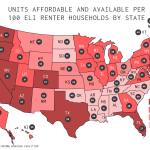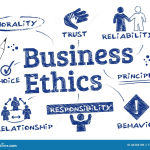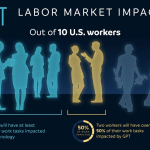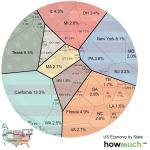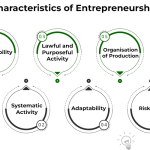Navigating the complex landscape of the U.S. economy has become increasingly challenging, as recent developments have raised significant concerns among economists and investors alike. The ongoing trade war impact, particularly with major trading partners such as China, Canada, and Mexico, has led to fears of a U.S. recession warning that echoes throughout the financial markets. The Federal Reserve’s interest rates decisions may also play a crucial role in shaping future economic growth, especially as we analyze the latest consumer sentiment index, which reveals a notable decline in public confidence. Factors contributing to this economic volatility include trade tensions, inflationary pressures, and fluctuating employment rates. As these elements intertwine, they create a unique environment that demands careful observation and strategic responses to bolster economic stability.
Dissecting the intricacies of the American financial framework reveals a scenario where fluctuations in international policies and domestic economic indicators drive national discourse. The turmoil stemming from trade disputes signifies a critical juncture, invoking fears of an extended contraction in economic activity. As government monetary strategies come under scrutiny, policymakers must balance the dual challenges of fostering job growth and managing inflationary trends. Consumer outlook, as represented by the sentiment index, reflects a cautious public grappling with economic uncertainties. Such dynamics underscore the pressing need for a cohesive approach to safeguard the trajectory of the nation’s fiscal health.
Understanding the Impact of Trade War on the U.S. Economy
The ongoing trade war, primarily triggered by tariffs imposed on American goods, has had a significant impact on the U.S. economy. Economists now highlight that the rising tensions with countries like China, Mexico, and Canada can lead to reduced consumer confidence as market volatility becomes a constant. The unfortunate consequence of these international trade disputes is the increased uncertainty they generate among investors and consumers alike. Many believe that such instability could culminate in a recession that could potentially mimic the conditions faced during the 1970s, characterized by high inflation and stagnant economic growth.
Higher tariffs often lead to increased prices for goods, which can result in lower consumer spending, adversely affecting the consumer sentiment index. This is evident as recent reports suggest it has plummeted to its lowest levels since late 2022. As purchasing power diminishes due to rising costs, businesses face decreased demand for their products, inevitably leading to slower economic growth. If this trend continues, it raises alarm bells about the possibility of a recession given that the factors driving economic performance, such as consumer spending and business investment, are under significant strain.
Federal Reserve’s Interest Rates Dilemma amidst Economic Turmoil
The Federal Reserve is navigating a complex landscape marked by both inflationary pressures and faltering economic growth. As the trade war disrupts supply chains and increases production costs, the Fed is faced with a critical decision regarding interest rates. On one hand, cutting rates could stimulate borrowing and investment, providing a much-needed boost to the economy. On the other hand, lowering rates could exacerbate inflationary pressures, especially in a climate where consumer prices are already under upward pressure due to tariff-induced costs.
Furthermore, maintaining a precarious balance, the Federal Reserve’s decision-making process is complicated by various economic indicators pointing towards a potential recession. With the consumer sentiment index falling and hiring rates declining, the Fed’s challenge is to support the economy without triggering runaway inflation. It has opted to maintain current rates for now, a bold move that reflects both its concern for inflation control and the urgency of averting a recession as economic conditions evolve.
Evaluating the Risk of U.S. Recession in Current Economic Conditions
As we assess the economic landscape, the warning signs of a recession become increasingly hard to ignore. Analysts, including Harvard economist Jeffrey Frankel, have identified several contributing factors that may lead the U.S. into a downturn. Among these, the detrimental effects of the trade war and potential cuts in government spending stand out. In addition, uncertainties stemming from the stock market’s erratic behavior and rising risk perception could further exacerbate these risks, creating an environment where economic stability is elusive.
Investors contribute to the cyclical nature of recessions through their reactions to these instabilities; a decline in consumer confidence often results in reduced spending, making recovery more challenging. The heightened risk perception also risks making businesses hesitant to invest or expand, leading to a feedback loop that could deepen the economic downturn. The concerning trend indicated by the consumer sentiment index shows that people are bracing for tough times ahead, which further fuels the prospect of an impending recession.
The Role of Consumer Sentiment in Economic Growth Factors
Consumer sentiment plays a pivotal role in driving economic growth, as it directly influences spending behavior in an economy. The recent decline in the University of Michigan’s consumer sentiment index suggests that households are feeling the impact of the trade war, stock market instability, and rising costs. Such feelings of uncertainty diminish consumer willingness to spend, especially on big-ticket items, thereby slowing overall economic activity. When consumers hold back on their spending, businesses often face diminished sales, which can lead to layoffs and further exacerbate economic slowdowns.
Additionally, consumer confidence is closely linked to employment rates and wage growth. As hiring cools, a phenomenon already being reported, consumers are likely to become even less optimistic about their financial situations, resulting in decreased spending. This creates a dangerous cycle where declining consumer sentiment feeds into lower economic growth, further impacting job security and incomes. As concerns about a recession loom, maintaining a positive and stable consumer sentiment becomes critical for ensuring a robust economic recovery.
Examining Economic Growth Factors Amidst Turbulent Times
In light of the current economic challenges, it is essential to examine the various factors influencing economic growth. The interplay between trade policies, consumer confidence, and Federal Reserve actions significantly impacts growth trajectories. When tariffs disrupt trade and lead to higher costs for consumers and businesses, economic growth is stifled. These tariffs can create ripple effects throughout the economy, leading to increased prices for goods and a consequent reduction in consumer spending.
Furthermore, government spending policies also play a crucial role in shaping economic growth. As political discussions continue about potential cuts to public spending, the implications for the economy could be profound. Reduced government spending during critical periods can hamper economic momentum, pushing the economy closer to a recession. Therefore, careful consideration of these economic growth factors is paramount, especially for policymakers and stakeholders who seek to foster a resilient and thriving economic environment.
Trade War: A Catalyst for Increased Economic Uncertainty
The trade war has emerged as a catalyst for increased economic uncertainty, significantly impacting business strategies and consumer behavior. As tariffs escalate, businesses must reassess their supply chains and pricing strategies, often resulting in higher costs that are eventually passed onto consumers. This uncertainty surrounding trade policies not only affects large corporations but also small businesses that rely on affordable imports to maintain competitive pricing. As a result, many are adopting a ‘wait and see’ approach rather than investing in growth or expansion.
Moreover, the chilling effect of the trade war on consumer sentiment cannot be overstated. The looming threat of continued tariffs and retaliatory measures can lead consumers to curtail spending, resulting in a ripple effect across the economy. This uncertainty fosters an environment of caution, where families hold off on making significant purchases, which is crucial for driving economic growth. The direct correlation between trade tensions and economic performance highlights the urgency for policymakers to find solutions that ease trade tensions and restore consumer confidence.
Inflation Pressures: Managing the Economic Aftermath
Amid heightened economic pressures, inflation has emerged as a pressing concern for the U.S. economy. In a landscape where trade wars are pushing prices higher, maintaining price stability while fostering growth presents a significant challenge for the Federal Reserve. The central bank aims to balance the need to control inflation with the necessity of ensuring economic growth, particularly as signs of a slowdown emerge across various sectors. This delicate balancing act will require careful consideration of monetary policy tools and their potential implications for employment and overall economic health.
As inflation rates rise due to tariffs and supply chain disruptions, consumers are likely to see increased costs for everyday goods. This further erodes purchasing power and dampens economic prospects, feeding into a cycle that complicates recovery efforts. In response, the Federal Reserve must monitor inflation trends closely, adjusting interest rates judiciously to promote a healthy economic environment. As the consequences of inflation linger, addressing these challenges proactively is essential for stabilizing the economy and fostering growth.
Anticipating Market Reactions in Uncertain Economic Times
As the U.S. economy grapples with multiple uncertainties, how markets react to the evolving situation will be instrumental in forecasting future economic conditions. Investor sentiment remains highly sensitive to news surrounding the trade war and economic indicators such as the consumer sentiment index. Churning markets often reflect broader economic anxieties, leading to increased volatility that can further destabilize the economy. Market participants are keenly monitoring developments, adjusting their strategies in response to shifts in policy or economic outlook.
Moreover, fluctuations in the stock market can significantly affect consumer confidence and spending habits. When stock values drop, consumers might perceive their wealth as diminished, leading to reduced spending and investment. This relationship underscores the interconnected nature of market dynamics and overall economic health. As market reactions continue to develop, understanding these patterns becomes crucial for stakeholders attempting to navigate the turbulent economic landscape.
Future Outlook: Navigating Economic Challenges Ahead
Looking ahead, the economic outlook for the U.S. remains fraught with challenges, requiring strategic solutions to navigate the uncertainties. Factors such as ongoing trade tensions, rising inflation, and fluctuating consumer sentiment will require continuous monitoring and adept policy responses. Economists urge caution, as missteps amid this complexity could precipitate a downturn, especially if combined with factors like hiring slowdowns and faltering investment. Policymakers must focus on fostering a stable environment that encourages growth while mitigating risks.
In the face of these challenges, the focus on economic resilience becomes paramount. Building robust frameworks that support both consumers and businesses will be essential in reversing negative trends observed in consumer sentiment and investment levels. By creating an environment that nurtures confidence and promotes sound economic policies, the U.S. can better position itself to overcome the hurdles. Ultimately, addressing these underlying economic pressures proactively will be critical to safeguarding the future of the U.S. economy.
Frequently Asked Questions
What is the impact of the trade war on the U.S. economy?
The trade war has significant implications for the U.S. economy, primarily by creating uncertainty in market conditions. Tariffs imposed by other countries in response to U.S. tariffs have led to increased prices for consumers and reduced competitiveness for American businesses. This situation can also trigger fears of a recession as the economy reacts to decreased consumer sentiment, which has recently dropped to its lowest levels since November 2022. Overall, prolonged trade tensions are viewed as detrimental to economic growth factors.
How do Federal Reserve interest rates affect the U.S. economy?
Federal Reserve interest rates play a crucial role in the U.S. economy by influencing borrowing costs, consumer spending, and investment. Low interest rates generally stimulate economic activity by making loans cheaper, which can enhance growth. Conversely, higher rates can slow down the economy to keep inflation in check. As the U.S. economy faces challenges, including those from the trade war, the Fed is tasked with finding a balance between economic growth and inflation control. Current indications suggest the Fed may opt to maintain stable rates amid rising uncertainties.
Is the U.S. recession warning valid given current economic indicators?
Yes, recent economic indicators suggest a valid concern for a potential recession. Factors such as a declining consumer sentiment index and cooling job growth point towards a slowdown. Additionally, external elements like the ongoing trade war, market volatility, and uncertainty in government fiscal policies are contributing to fears of economic contraction. Economists warn that if these trends persist, a recession could occur within the next year.
What does the consumer sentiment index indicate about the U.S. economy?
The consumer sentiment index is a critical measure of how optimistic or pessimistic consumers feel about the economy. A decline in this index, which recently hit its lowest point since November 2022, suggests that consumers are losing confidence in the economic environment. This sentiment influences spending, which is a key driver of economic growth. As consumer confidence weakens, it can lead to reduced spending, further affecting the overall health of the U.S. economy and raising recession concerns.
What are the economic growth factors currently affecting the U.S. economy?
Several key economic growth factors are currently affecting the U.S. economy, including trade policies, consumer confidence, and government fiscal decisions. The ongoing trade war has introduced uncertainty, affecting investment and supply chains. Additionally, the decline in consumer sentiment and potential cuts in government spending contribute to fears of slower growth. These factors combined create a challenging environment for the U.S. economy, prompting discussions about potential recession risks.
| Key Point | Explanation |
|---|---|
| Tariff Impacts | U.S. markets faced losses due to tariffs from China, Mexico, and Canada, raising fears of a recession. |
| Consumer Sentiment | The University of Michigan’s consumer sentiment has dipped to its lowest since November 2022, indicating decreased public confidence. |
| Risk of Recession | Analysts believe a recession may occur within the next year due to several factors including trade wars and declining stock markets. |
| Federal Reserve’s Dilemma | The Fed must decide between cutting interest rates to boost growth or maintaining rates to control inflation. |
Summary
The current situation in the U.S. economy is marked by increasing uncertainty and potential risks leading to a recession. Factors such as tariff impacts on markets, declining consumer sentiment, and various economic pressures have raised alarms among analysts. The Federal Reserve faces a significant challenge balancing inflation control and the need to support economic growth as they navigate these turbulent times.


